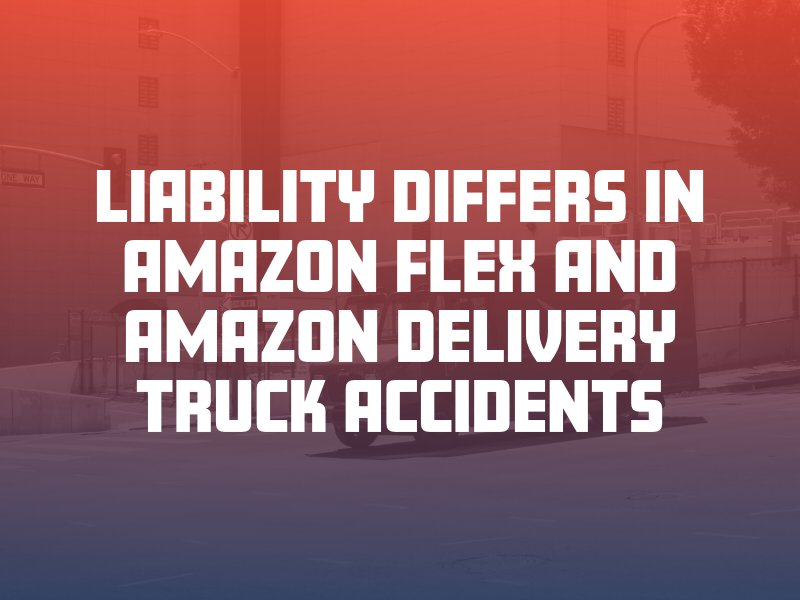As Amazon’s commercial footprint expands globally, its delivery network has correspondingly grown with complex services designed to accommodate different logistical needs. Two branches of the company’s goods delivery services include Amazon Flex and traditional Amazon Delivery Trucks – each having their own unique operational aspects.
Amazon Flex Drivers
Amazon Flex operates as a part of the “gig economy,” leveraging a network of independent contractors – dubbed ‘Flex drivers’ – who use their own personal cars to make individual package deliveries. As Amazon constantly strives for service speed and adaptability, this approach helps them handle same-day delivery needs effectively.
The draw for many interested in participating in the program as workers lies within its flexibility. With Flex drivers setting up their schedules around given blocks of time that align with personal convenience combined with opportunities for earning competitive payment rates, it presents an attractive gig work option.
Their primary responsibilities include receiving orders at local delivery stations or stores before transporting these packages to the provided destination.
Liability in Amazon Flex Accidents
Navigating liability in Amazon Flex accidents can be quite complex due to its structure. Most often, the Amazon Flex driver will be held liable if their negligence or intentional disregard for safety regulations led to the accident.
Because Amazon Flex drivers operate as independent contractors, they are technically responsible for their own actions while making deliveries. They’re required to use their personal vehicles and work on flexible schedules that suit individual convenience.
In anticipation of mishaps involving its drivers during active service hours, Amazon provides commercial insurance coverage which can handle up to $1 million in auto liability damages inclusive of collision or uninsured motorist property damage claims. However, this takes effect only upon having a valid existing insurance policy attached to the vehicle being used.
This means if you are involved in an accident with an Amazon Flex driver who is not insured, Amazon’s policy won’t provide any coverage for your damages.

Amazon Delivery Trucks
Amazon delivery truck drivers are actually employed by Delivery Service Partners (DSPs) and not by Amazon itself. A DSP is an independent business that partners with Amazon to deliver packages; they hire, train, and manage their own teams of drivers.
While these independent companies may not technically be part of the corporate hierarchy within Amazon, they fall under its operational control in many ways due to stringent contractual agreements which govern their relationship with Amazon.
Through their contractual relationship with Amazon, DSPs have several key obligations. Firstly, they must share physical access and data regarding the drivers’ locations, speed and movement.
DSPs are also expected to maintain a professional representation of Amazon’s public image on social media: they should avoid obscene or inappropriate posts given their association with the company’s brand name.
Additionally, DSPs are responsible for their drivers participating in training programs approved by Amazon.
Liability in Amazon Delivery Truck Accidents
While Amazon delivery truck drivers are not directly employed by Amazon, the level of control exerted over them may blur the lines when it comes to legal matters. When an accident involving a delivery truck occurs, liability can become fairly complicated due to this worker structure.
Normally in cases involving contractor negligence leading to accidents and injuries, the individual employer – in this case, the independent delivery service provider – would assume full liability. This is because each DSP is a separate business entity that merely operates under contractual obligations with Amazon.
However, the increasing control Amazon holds over its delivery partners might lead courts and official bodies to perceive the company as a “joint employer” or a party that is “vicariously liable.”
The concept of Amazon as a joint employer or vicariously liable party refers to the idea that despite not directly employing delivery truck drivers, the considerable control it exerts over its DPSs could legally implicate Amazon in certain situations.
Contact a Lawyer For Help
Given the complexity of identifying the liable parties in Amazon delivery truck and Flex accidents, legal matters can quickly become overwhelming. The lines between employer and independent contractor are often blurred due to the unique employer-driver relationship that exists within Amazon’s operational model. Seeking professional legal guidance is crucial during these challenging times. Contact a New Mexico Amazon truck accident lawyer today to schedule a free consultation.

